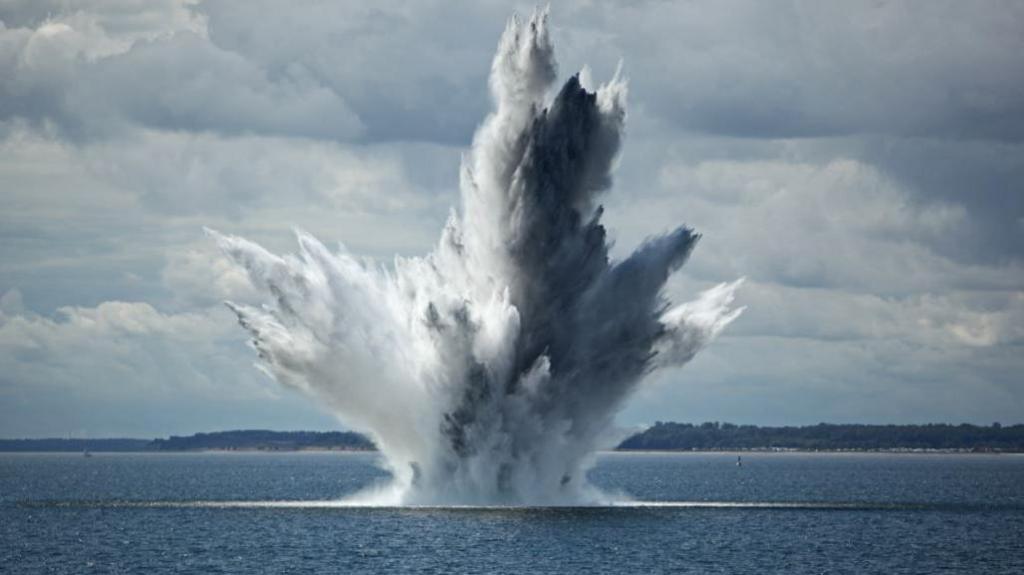Offshore wind firms told WWII bomb disposals must be less noisy

- Published
The government has ordered offshore energy firms to avoid "noisy" detonations when disposing of unexploded bombs on the seabed, in a bid to protect vulnerable marine life.
There are still more than 300,000 pieces of unexploded ordnance from the First and Second World Wars dotted around UK waters, which must be cleared for wind projects to go ahead.
Marine minister Emma Hardy said "high-order" detonations of the dormant weapons should be a last resort and the industry must adopt quieter alternatives instead.
Large explosive blasts can kill off whales, dolphins and other sea creatures, and the noise can disrupt their behaviour, experts say.
World War Two bombs could harm whales and dolphins
- Published3 November 2020
Proposed wind farms 'devastating' for fishers
- Published23 September 2024
How to protect birds and bats from wind turbines
- Published4 June 2021
The government is working with the Crown Estate and staff from the explosives and offshore wind industries to test and develop new, quieter technologies for bomb clearance.
Hardy said the rules will allow more offshore wind farms to be built while protecting vulnerable animals.
"These new measures support the construction of offshore wind that the UK needs, while making sensible changes to stop needless harm to underwater life," she added.
Stop Sea Blasts campaigner Joanna Lumley said she was "thrilled to the core" at the decision to protect the UK's "unbelievably precious seas".
"This is a magnificent example of government and industry coming together to embrace technology and challenge the old way of doing things," she said.
"This announcement should ensure that high-order detonation, and the damage it wreaks, is consigned to the history books."
Offshore wind is key to the government's plans to decarbonise the UK's energy grid by 2030 under its Plan for Growth.